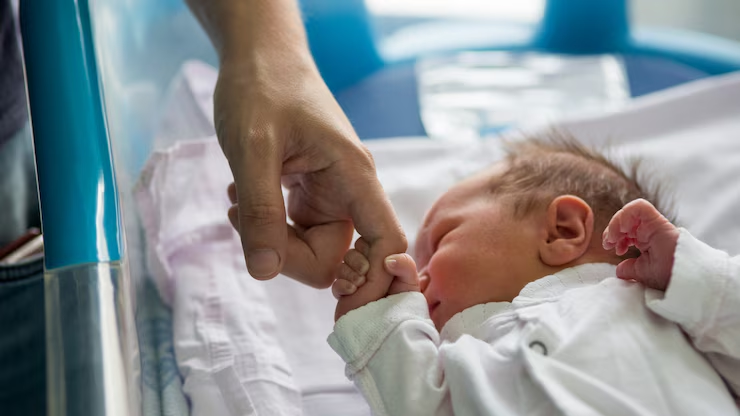NICU Services
Premature baby care
Babies born before 37 weeks of gestation are considered premature. Prematurity is one of the
most common reasons for admission to the Neonatal Intensive Care Unit (NICU). These babies
are at increased risk for various short- and long-term health issues. However, many of these
complications can be prevented or managed effectively with quality care immediately after
birth. Premature infants are best cared for by specialists in newborn medicine, known as
neonatologists. Therefore, it is essential that such babies are delivered in a healthcare facility
equipped with advanced neonatal care technology, skilled nursing staff, and experienced
neonatologists to ensure the best possible outcomes.
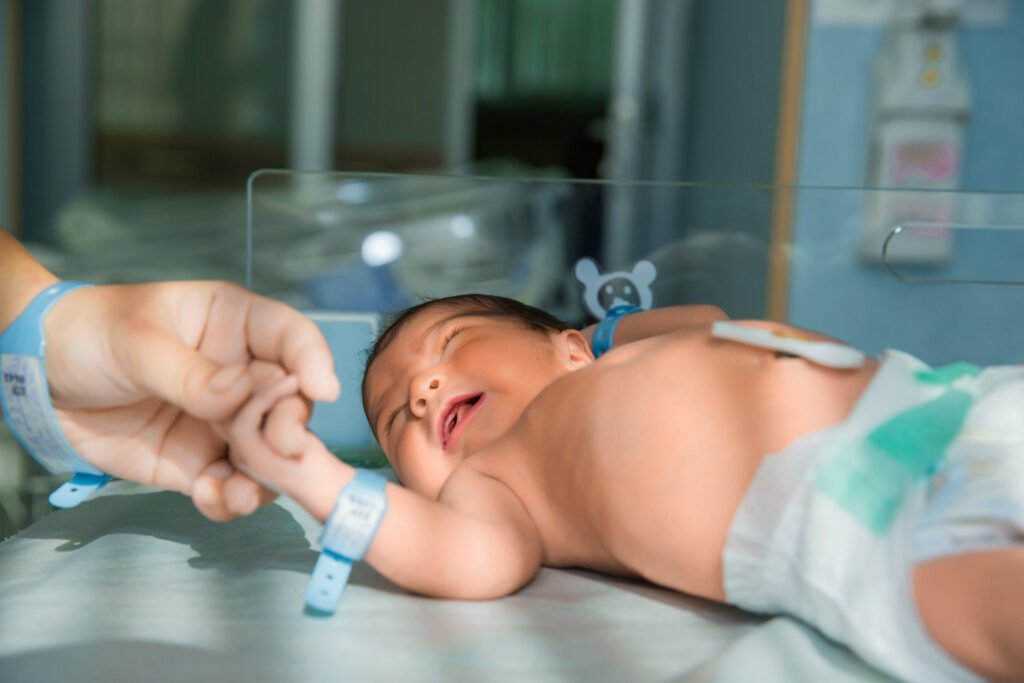
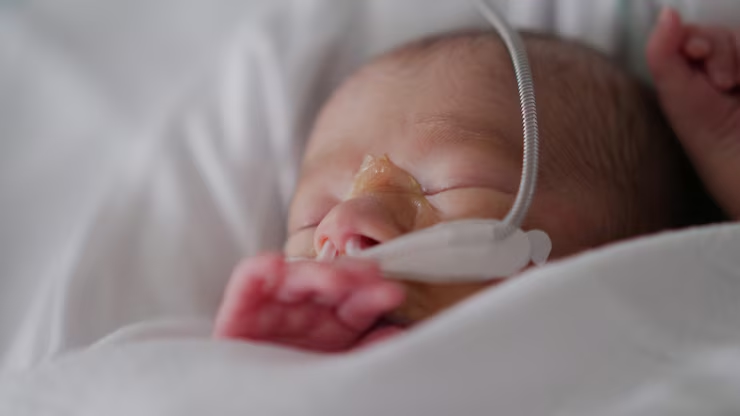
Infection/ Pneumonia
Infection (Sepsis) is among the leading cause of death in newborns admitted to the NICU. If not
identified and treated promptly, infections can severely affect a baby's health and may even
become life-threatening. When bacteria enter the bloodstream, the infection can spread to the
brain, potentially causing long-term developmental issues. Preventing infection is one of the
most effective ways to improve outcomes for newborns. However, due to their underdeveloped
immune systems, newborns are especially vulnerable. If an infection does occur, early detection
and appropriate antibiotic treatment can significantly reduce the risk of serious complications.
Jaundice
Jaundice is a common condition in newborns, where the skin and eyes look yellow due to a
substance in the blood called bilirubin. It often appears during the first week of life and usually
gets better on its own. But in some babies, jaundice can rise to levels that need treatment. In
such cases, your baby may be placed under a special blue light in the NICU—this is called
phototherapy and helps the body break down the excess bilirubin. Rarely, if jaundice becomes
very severe, a special procedure called an exchange transfusion (nearly 80% of baby’s blood is
changed) is done to protect the baby’s brain and development. The most important thing is
catching it early and starting treatment on time. With proper care, most babies recover
completely.
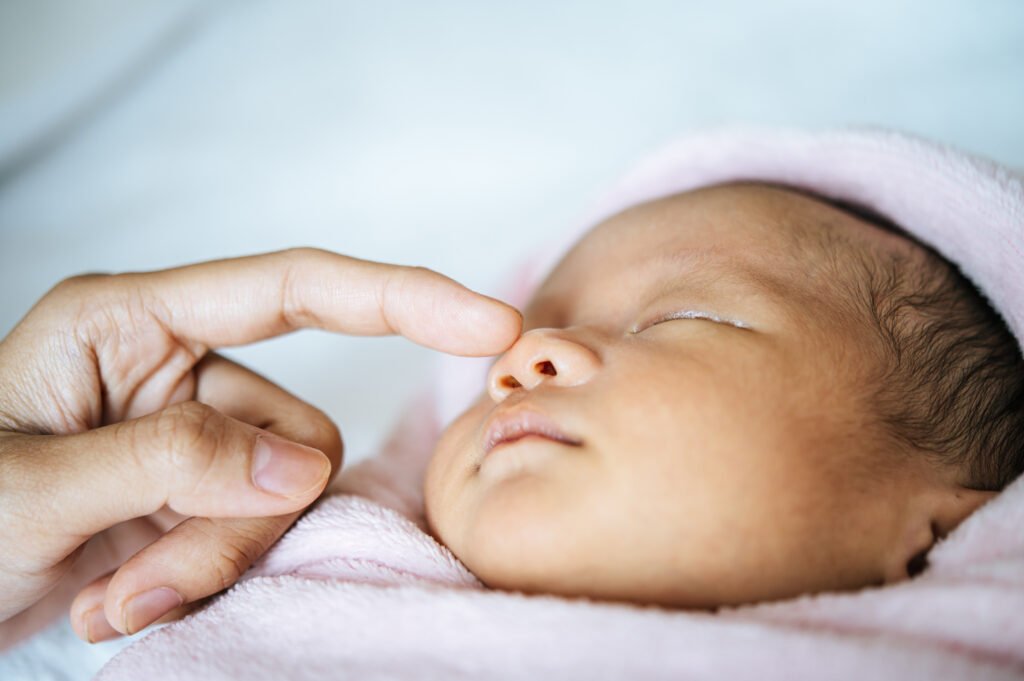
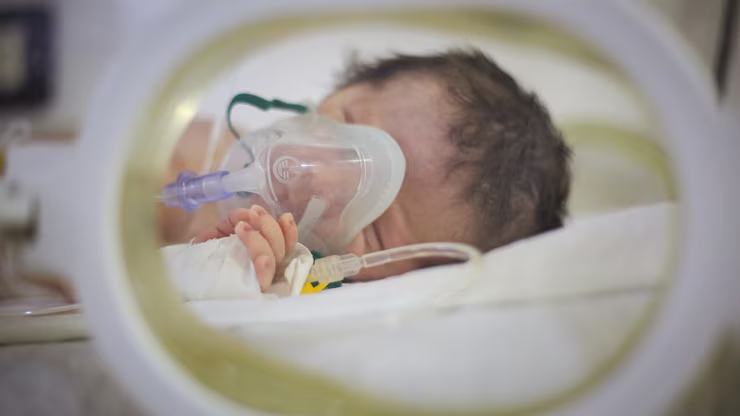
Respiratory distress
Fast breathing, labored breathing, and grunting (a soft moaning sound) are early signs of
respiratory distress in newborns. When these symptoms appear, the baby needs close
monitoring in the Neonatal Intensive Care Unit (NICU), and appropriate respiratory support
should be provided depending on the severity. All newborns with respiratory distress are
considered seriously ill and require specialized care in a well-equipped NICU—with access to
advanced support systems such as CPAP (Continuous Positive Airway Pressure) and ventilators.
If left untreated, respiratory distress can quickly become life-threatening. Early recognition and
timely intervention are critical to ensure the baby's safety and recovery.
Emergency neonatal care/ Seizures
Newborns may occasionally experience medical emergencies such as seizures (fits), sudden stoppage of
breathing, dehydration, high fever, bluish discoloration of the skin, unusual sleepiness (lethargy), or
poor feeding. These signs can indicate serious underlying conditions that require immediate medical
attention. In such situations, it is crucial to take the baby promptly to the nearest Neonatal Intensive
Care Unit (NICU) equipped with the necessary facilities and staffed by trained specialists
(neonatologists). Early and appropriate intervention can be life-saving and help prevent severe
complications.
